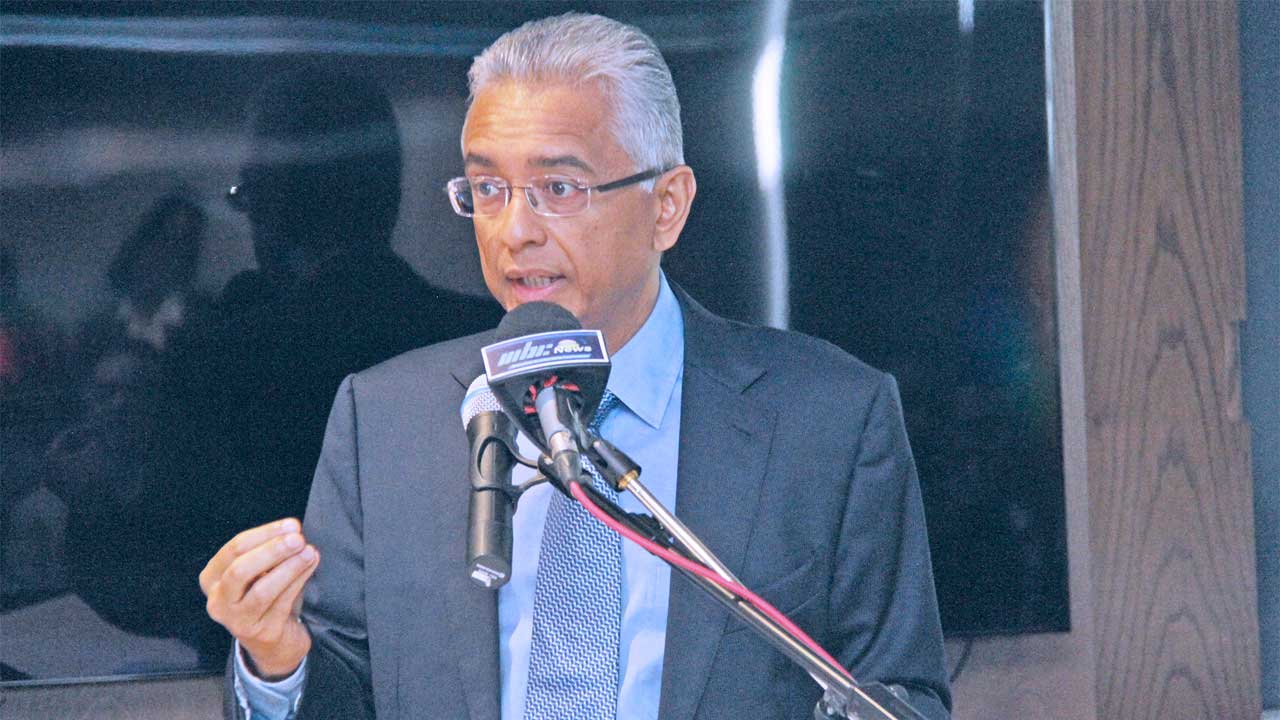
Transforming the way government interacts with the people. This resumes the aim of Prime Minister Pravind Jugnauth’s new policy of revamping the way Citizens Advice Bureaus operate. He wants these outposts to bridge the gap between the public and government institutions.
There will soon be the setting up of a Citizen’s Support Department (CSD) that will operate under the ageis of the Prime Minister’s Office, said Mr Pravind Jugnauth. “There was a similar system at Moka’s Citizens Advice Bureau and it worked,” he said. The Citizen’s Support Department will monitor the status of projects implementation to be disseminated to the public and will be equipped with modern technology and operate as a digital interactive platform.
Prime Minister Pravind Jugnauth was speaking at the opening of a workshop organised by the National Development Unit on Revamping of Citizen’s Advice Bureaus (CAB) at the Voilà Hotel, in Bagatelle, on Thursday. The workshop gathered officers from Prime Minister’s Office, the Permanent Secretary of the National Development Unit Mr Jadoo, Parliamentary Private Secretary Rajcoomar Rampertab, President of MACOSS, Girish Bucktowansingh and representatives of 25 NGOs.
The Prime Minister further added that the new Citizen’s Support Department will allow the government to meet with the increasing demands and needs of the population with regard to project implementation. Pravind Jugnauth added that the aim of setting up of the CSD is to achieve the objectives outlined in the Economic Mission Statement – Vision 2030 of the government. He called for the collaboration of all stakeholders namely the public and private sector, NGOs, civil society, the population at large to help in accomplishing the set objectives.
Speaking about the workshop, Prime Minister Jugnauth said that he hoped that the workshop would help in evaluating the performance of the NDU and CABs. “Some people have many problems but if a citizen comes to the CAB and is warmly welcomed, even though there is no solution, at least he/she will be heard and reassured. The Citizens Advice Bureaus must be able to welcome all, even those with disabilities. We need to make our CABs more dynamic.”
He also highlighted that the role of a Parliamentary Private Secretary is crucial. “They act as a bridge between the government and the people… The technological evolution must be taken into account. Especially when it comes to communication so that citizens can be assisted quickly.” On the same line, he reiterated that one among his main concerns is to be at the service of the population. He recalled that Rs 850 million have so far been allocated to many projects including drainage projects. According to the Prime Minister, the faster the projects are implemented, the more encouraging it is for the government to provide more funding for the realisation of new projects for the benefit of the citizens.
The goal of the workshop was to make CABs more effective, especially in solving the problems of citizens in each constituency. On his side, the President of MACOSS, Mr Girish Bucktowansingh, explained that this workshop is organised in a spirit of ‘caring and sharing’. “More than 30 NGOs are working with the Citizens Advice Bureaus. The goal of the CABs is to narrow the gap between the grassroots and policy makers,” he said.
History of the CAB
Citizens Advice Bureaus were set up in 1989, based on the British model. At that time, Mauritius had already gone through two decades since its Independence. The government deemed it right to create the CABs so as to bring State facilities and development to the doorstep of the citizens. The motto “Amen Developman Divan ou la Porte” was adopted.
There are currently 35 CABs scattered throughout Mauritius and one in Rodrigues and all regions of the island are covered by the CAB network.

Functions
- Register suggestions/complaints from the public regarding the need for basic facilities in their regions
- Provide assistance/ information to callers on issues of concern to provide them assistance/ information to callers on issues of concern to them
- Assist/advise members of the public regarding services provided by government and parastatal bodies
- Direct people towards the appropriate agencies
- Enable people to express their needs and problems effectively
- Act as intermediary between the people and government by transmitting the needs expressed by the people to government
- Create a well- informed society that can contribute effectively to the development of the country
- Integrate the local people in the process of development.Integrate the local people in the process of development
- Encourage people and NGO’s to participate proactively in the development of the localities
- Identification and implementation of micro projects.
- Bring about the collaboration of other agencies and institutions in order to offer assistance to those in need
- Organise talks and seminars to inform people on subjects related to their welfare
- Register suggestions from the citizens and NGO’s for the improvement of their living environment
- Provide first hand counseling to citizens and refer them to specialised institutions as and when necessary
- Adopt a pro-active approach to serve as facilitator to come to the help of people particularly the needy and vulnerable group
 J'aime
J'aime














